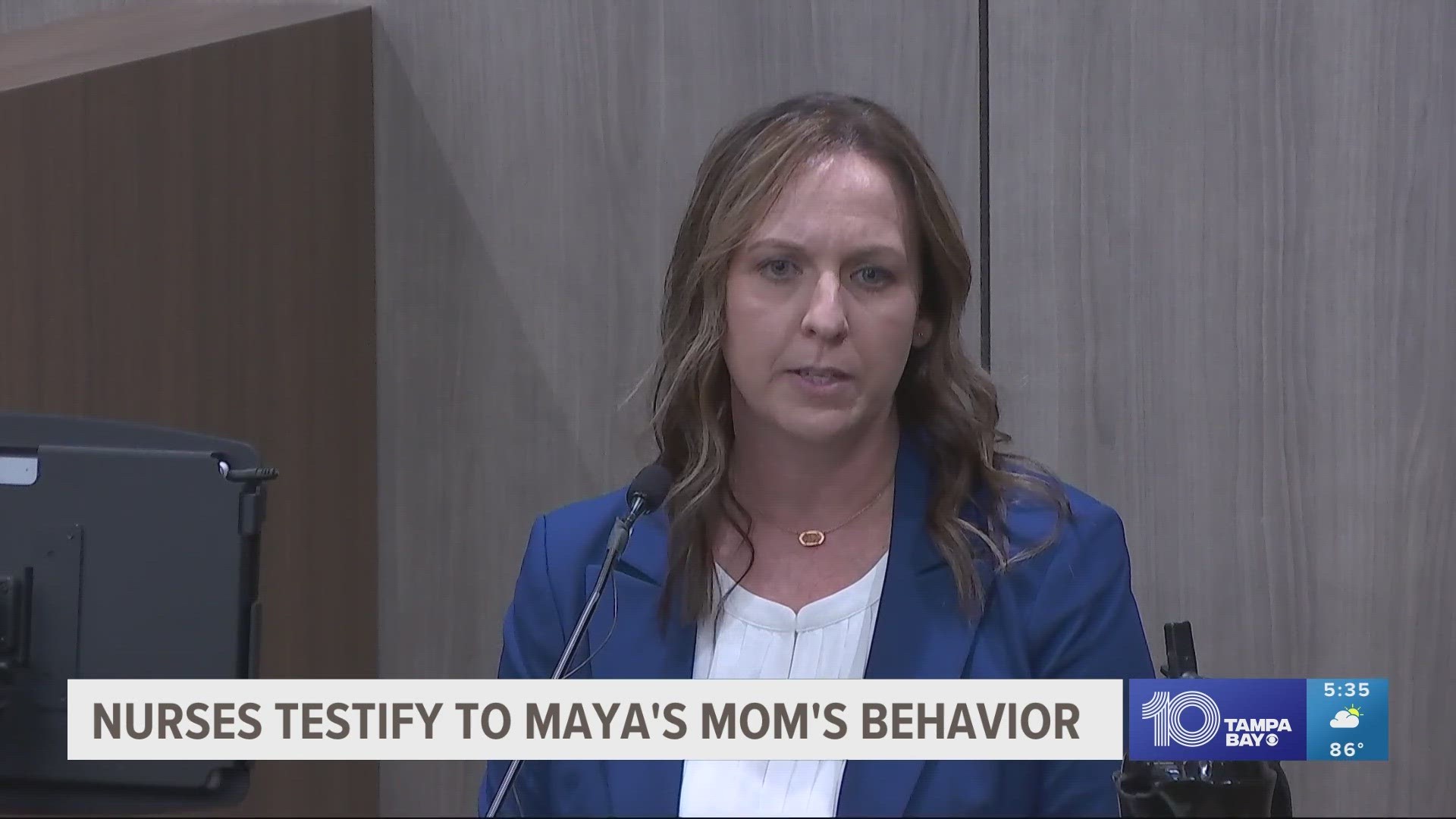VENICE, Fla. — More medical staff from Johns Hopkins All Children's Hospital took to the stand for the defense in the final week of testimony in the "Take Care of Maya" trial.
It's the case of the $220 million lawsuit filed by the Kowalski family of Venice about how they were treated at the hospital and how their daughter Maya was kept away from the family for 87 days.
The family's ordeal, which is at the center of the Netflix documentary "Take Care of Maya," began in the fall of 2016 after her father, Jack Kowalski, had taken her to the hospital's emergency room after she had complained about extreme pain from her condition Complex Regional Pain Syndrome.
In the lawsuit, the family claims the hospital's actions while caring for Maya led to the suicide of her mother – Beata Kowalski. They also said the hospital medically kidnapped Maya and some staff were physically abusive to her on at least one occasion. However, attorneys for the hospital have stated that the picture painted by the plaintiffs was not the case and have offered a retinue of defense witnesses to the court including doctors and nurses to lay out their case.
One nurse who took the stand claimed Maya's mother enticed her daughter pain pills as a reward.
"I recall it being a very tense environment and Maya was very belligerent," said Kelly Thatcher, a pediatric nurse practitioner at the hospital.
Thatcher told the court this week that she was working as Maya's nurse when she interacted with Beata Kowalski around Oct. 7, 2016.
"Mrs. Kowalski was not interested in having any conversations with me," Thatcher said. "I would try to talk to her but she wasn't really listening and I couldn't really touch similar grounds with Mrs. Kowalski.
"I would always try to bring my parents into conversations but she was not in any way at all interested in discussing anything at all with me."
She said Beata was instead dictating to medical staff what treatment she wanted for Maya.
"We wanted to do the scan and it was actually Mrs. Kowalski who was refusing the scan and she wanted Maya to fall asleep within minutes then she thought it was appropriate to go to the CT scan, and that was not us refusing," Thatcher said.
Thatcher buttressed several testimonies from nurses and physicians about Maya using foul language.
"Maya was cursing a lot, she was cursing during most of my interactions with her," she said. "She was yelling to us that she wanted to be sedated and she was saying, "Sedate me, I want to be sedated.'"
Thatcher said aside from Beata requesting high doses of ketamine and pain medications like propofol for Maya, there were many other red flags that were raised about her interaction with her daughter. Thatcher said there was always a change in Maya's behavior whenever her mother was out of the room.
"Maya was very pleasant, very age-appropriate like you would think a 10-year-old would behave," she said. "She used kind words, unfortunately, I don't remember what we talked about but I let her lead the conversation because I was enjoying those moments with her."
Thatcher added that her concerns were heightened when her mother, Beata, offered pain medication as an incentive to Maya.
"She specifically told Maya that if she laid still for the scan she would get a reward and when she was done, she said, 'Now you get a Valium,' I don't know how else to interpret that," she said. "I don't really want to speculate on what she wanted but it's not a safe practice. She was a registered nurse and she was an infusion nurse and she would've known that there was a potential to bully Maya with medication, which is absolutely against our Florida nursing practice and it's outside of our scope of practice as a nurse."
The last set of defense testimonies and depositions as well as rebuttals are scheduled for Wednesday, Nov. 1, while the jurors will take a two-day break on Thursday and Friday. Closing arguments and jury deliberations begin next week.

